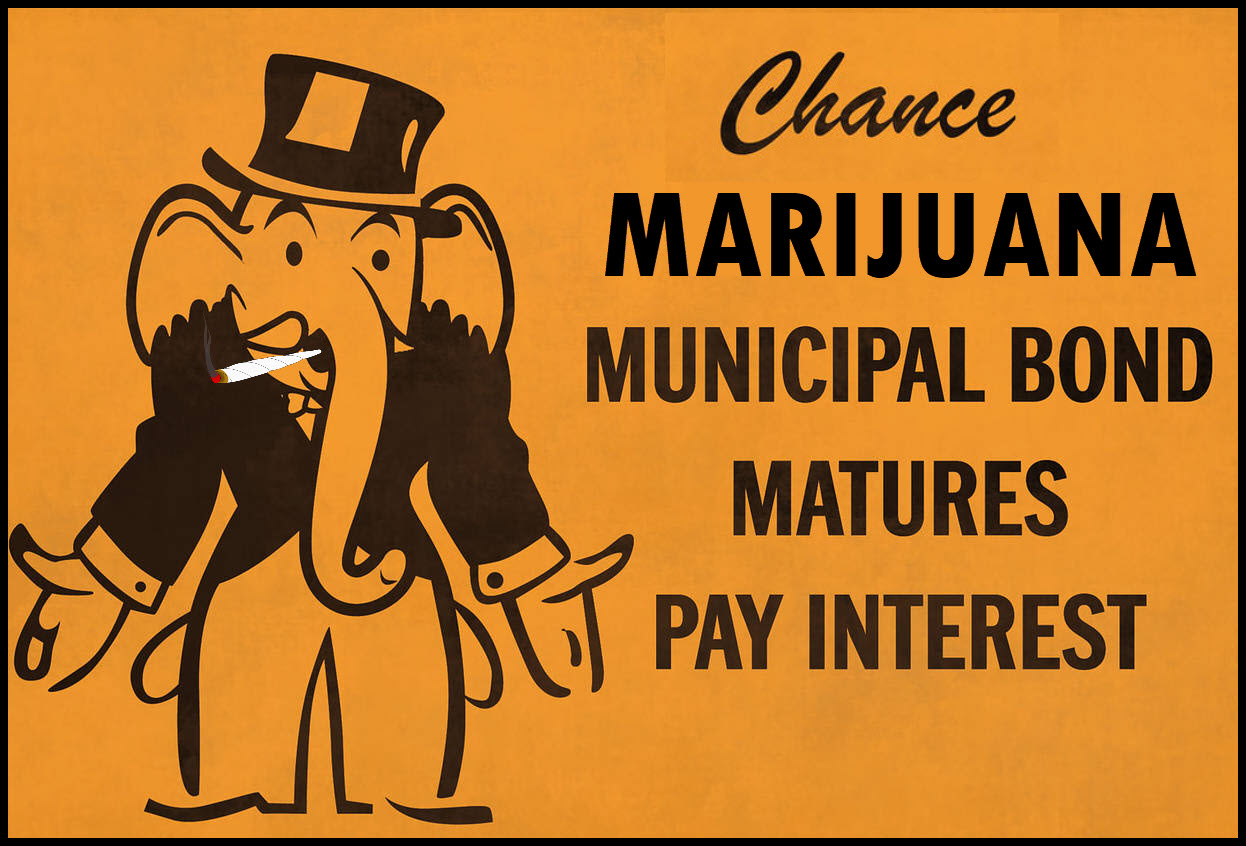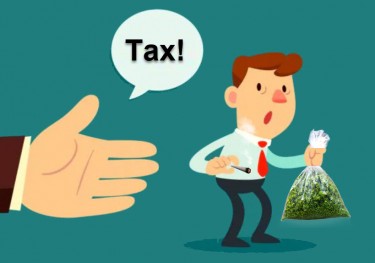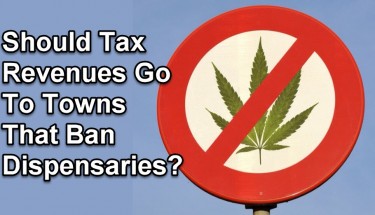
Would you buy a cannabis town bond for your retirement savings?
With the cannabis discourse, governments, investors, and enthusiasts are constantly looking for the next “big one”. What can the future of cannabis look like? They’re Cannabis Municipal Bonds (CMBs), and here’s why.
The Impact of the COVID-19 Pandemic on States and the CMB Discourse
The COVID-19 pandemic has hit America immensely, with cases increasing daily and negatively impacting the public sector worldwide. There is such a dire economic collapse and the “stay home” orders have not helped the situation.
Experts agree that the effects of the pandemic will last for several months to a year because of the sales and income tax cuts. Therefore, government agencies are currently considering ways to accelerate their recovery efforts; they are all looking for answers, and CMBs offer great potential.
Across America, economic growth is linked to the opening and maturation of cannabis markets. With U.S. rights sales estimated to reach $ 24 billion by 2022, the U.S. economy can maximize that reach over the next 4-6 years.
This enormous cannabis potential for the economy can also contribute positively to the economy if the illegal (black) market is included in the regulated one. But how can cannabis municipal bonds work? Why should government agencies consider them and how can they make up for lost revenue during the pandemic?
Reasons why CMBs are the future:
First, there are already tax-deferred special tax bonds for some activities or assets. For example, many states have special sales taxes on alcohol, gambling, and even tobacco called “sin taxes.” The income from these materials can be used to fund future investment initiatives such as infrastructure expansion.
A good example is the state of Iowa, which provides $ 55 million annually in gambling taxes to service its income bond debt. These bonds are used to fund community revitalization projects, bridge improvements, and mitigate disasters like floods.
As the initiatives exist and work, there is confidence that cannabis municipal bonds can continue to work.
Another reason for this reliance on CMBs is the fact that the state of Colorado has a flagship cannabis-funded social program called “Best”. BEST means “Building Excellent Schools Today” and focuses on supporting public schools in their countless building projects.
This program aims to provide Colorado students with world class, world class, and high quality school facilities that help alleviate health and safety concerns in the state.
BEST has four sources of income: Cannabis excise taxes, which make up 90% of annual sales of $ 40 million. The remaining amount goes to the permanent funds of the public schools.
In 2017-2018, $ 90.3 million in cannabis revenues was donated to the Colorado Department of Education. This is a massive increase from the 2016-2017 period, which was $ 48.5 million in cannabis tax revenues. This program is a workable example of how governments in states with legal adult use can leverage cannabis tax revenues and invest in their communities.
Colorado is a striking example of how states and local governments can tap the source of income from cannabis to fund ambitious projects.
The cannabis industry faces many challenges with the banking sector as most debtors do not want to do anything with cannabis until it is legal at the federal level.
While policy changes are critical to the expansion and growth of the cannabis industry, they do not prevent the use of cannabis-based municipal bonds.
States and local governments access cannabis tax revenues and mix the funds with general funds from other sources of income. The funds are then placed with the Federal Reserve System. The capital obtained from Cannabis Municipal Bonds would not differ from other tax revenues, so that no special regulation is required.
But convincing banks and underwriters to offer cannabis municipal bonds to the market will be another challenge. This challenge is enormous due to the problematic attitude of financial institutions towards the cannabis industry.
Potential Cannabis Municipal Bond States
Experts observe that the demand for CMBs will increase as cities and states grapple with the economic impact of the pandemic. Seven states could identify the potentials of CMBs and also promise to legalize cannabis for adult use.
States include Vermont, New York, Connecticut, Montana, New Jersey, Missouri, and Arizona. Although it is reported that only Missouri and Arizona will support CMBs, the state of Vermont does not have the tax revenue to make them valuable.
Cannabis revenues are “more stable” than tobacco, casino, or alcohol tax revenues (people love their weed). Since the idea of cannabis municipal bonds is still a novel concept, states may still be reluctant to issue them. But we’re already having the conversation, which means it looks very promising, and soon financial institutions will begin to ease their opposition to the cannabis industry.
In truth, CMBs could be the next step in legalizing cannabis in states where it’s not yet legal. Numbers don’t lie, and the increasing revenue cannabis brings to a state cannot be ignored.
Bottom line
Cannabis entrepreneurs currently have a unique window chance as they are part of the post-COVID-19 pandemic economic recovery solutions. Through the CMBs, you as a cannabis entrepreneur can take advantage of this opportunity.
Visit your local and state representatives if you are considering using Cannabis Municipal Bonds to pay for local initiatives that may lose funds due to the negative impact COVID has on tax returns.
CMBs will cement the cannabis industry’s place in society as a viable and essential part that deserves fair access to banking and standard tax regulations.
Demand for cannabis soared during the pandemic as Americans reportedly purchased $ 18.3 billion worth of cannabis products last year. That’s $ 7.6 billion more than the previous $ 10.7 billion last year.
So the revenues from cannabis are increasing, which means that in states where it is legalized they have constant access to the revenues it generates. The constant income is critical to helping communities run projects, which is why Cannabis Municipal Bond is the future.
CANNABIS TAX REVENUE, READ MORE …

CANNABIS TAX REVENES – HOW MUCH CAN STATE NATURE REALLY REMOVE WEED?
OR..

SHOULD TAX REVENUE APPLY TO CITIES THAT BANNED MARIJUANA COMPANIES?

Post a comment: